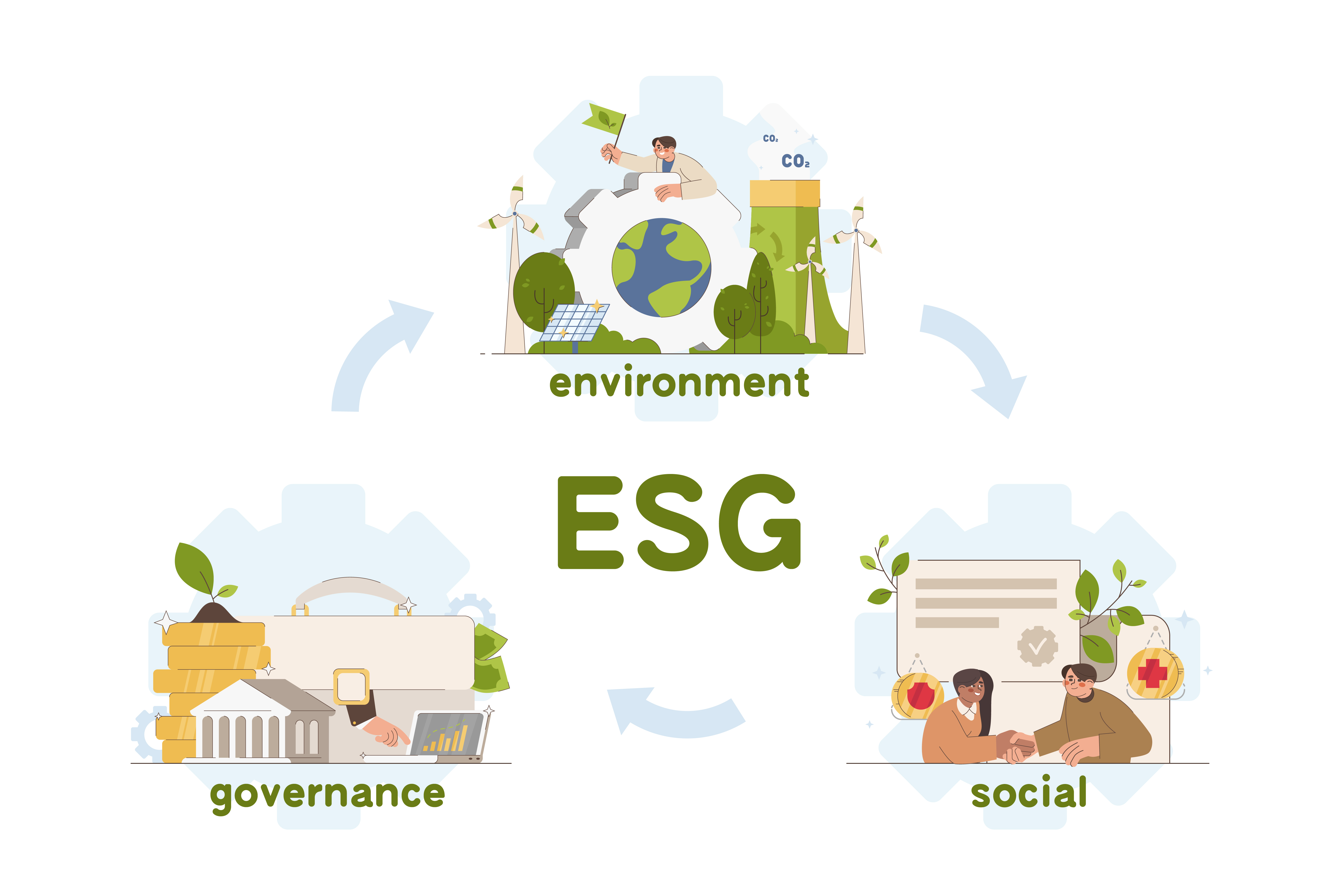
ESG Due Diligence: Integrating Environmental and Governance Data into Risk Screening


In 2025, ESG (Environmental, Social, and Governance) standards have moved from voluntary ideals to binding business imperatives. Investors, regulators, and global partners now demand accountability that extends far beyond financial statements.
ESG compliance defines how companies manage ethical sourcing, environmental responsibility, data transparency, and board governance. Those who meet these standards earn market trust; those who ignore them face exclusion from financing, heightened regulatory scrutiny, and reputational decline.
As the world’s economies shift toward sustainable capitalism, ESG due diligence — the systematic review of environmental, social, and governance factors during business vetting — has become a cornerstone of modern risk management.
BusinessScreen.com has taken a leadership role in this transformation by embedding ESG data directly into its compliance and due diligence ecosystem. Its advanced background screening and risk analytics systems allow businesses to verify not only who they’re working with, but how those partners behave, manage resources, and govern themselves.
Learn more about our Corporate Investigations Guide to see how governance and ESG data intersect in corporate due diligence.
ESG isn’t a marketing trend — it’s a survival strategy. Environmental degradation, social inequities, and poor governance now carry tangible financial costs. Investors view sustainability as an indicator of risk mitigation, and regulators increasingly treat ESG misrepresentation as a compliance violation.
Companies that fail to verify ESG integrity across their supply chains and investments risk lawsuits, sanctions, and capital withdrawal. Conversely, organizations that integrate ESG due diligence into corporate screening demonstrate resilience, responsibility, and long-term value creation.
In the global compliance landscape, ESG and due diligence are no longer separate disciplines. They converge to form a single, data-driven framework for ethical and regulatory assurance.
For a broader understanding of how ESG connects to transparency, see Beneficial Ownership Verification: Why It’s the Cornerstone of Modern Due Diligence.

From Europe to Asia to the U.S., governments have introduced strict ESG disclosure mandates. The EU Corporate Sustainability Due Diligence Directive (CSDDD) now obligates large companies to assess environmental and human rights impacts across their global value chains. The OECD Responsible Business Conduct Guidelines and UN Principles for Responsible Investment (PRI) demand measurable proof of sustainability, not self-declared promises.
In the U.S., regulators are expanding enforcement under the SEC’s Climate Disclosure Rules and the Supplier Transparency Act, ensuring that environmental and social risks are treated with the same gravity as financial misstatements.
These developments mean ESG data must be verified — not just reported. Businesses must collect and validate sustainability metrics with the same rigor as AML or KYC data. That’s where automation, analytics, and BusinessScreen.com redefine what ESG due diligence looks like.
ESG due diligence involves evaluating a potential partner, investment, or acquisition target through an expanded lens: environmental performance, social ethics, and corporate governance. The process mirrors traditional financial due diligence but includes non-financial data sources — such as carbon emissions records, human rights reports, diversity audits, and corruption indices.
BusinessScreen.com unifies these indicators within its compliance infrastructure, linking ESG verification directly to vendor and corporate background checks.
Its Reputational Due Diligence Guide demonstrates how early ESG red flags — such as poor labor conditions or opaque board oversight — often foreshadow financial or regulatory issues. Similarly, the Private Equity Due Diligence resource shows how investors now integrate ESG metrics into target evaluations, ensuring portfolio integrity and sustainable growth.
By blending ESG and governance data, BusinessScreen.com empowers organizations to make decisions that are profitable, compliant, and ethically sound.
When ESG factors are embedded into risk screening, the result is a deeper understanding of a company’s operational integrity. For example:
Businesses that analyze ESG risks before signing contracts or investments reduce their exposure to long-term financial damage and enhance stakeholder trust.
See our Vendor Due Diligence for Supply Chains guide for how ESG-aligned partners deliver transparency and lower volatility.
The challenge with ESG is credibility. Too often, sustainability claims rely on self-reported data or unaudited metrics. That’s where BusinessScreen.com’s automation tools deliver trust at scale.
Its platform cross-verifies ESG claims using validated data from environmental registries, governance disclosures, and global risk databases. Automated scoring models then integrate ESG insights with existing due diligence workflows — producing a single, comprehensive risk profile for each entity.
Using AI and machine learning, the system identifies inconsistencies between stated ESG commitments and actual performance indicators — such as unverified emissions offsets, incomplete governance filings, or negative media exposure.
This transparency ensures that ESG reporting moves beyond aspiration into accountability.
ESG due diligence once required manual review of lengthy reports and supplier audits. Now, AI-driven systems can analyze and monitor ESG data continuously.
BusinessScreen.com applies predictive analytics to sustainability metrics, identifying potential risks before they become scandals. Natural language processing (NLP) tools scan media, regulatory filings, and whistleblower reports to detect patterns indicating environmental violations or governance failures.
Predictive models learn from these inputs to forecast future ESG compliance performance — allowing businesses to anticipate problems rather than react to them.
For example, if a supplier’s carbon emissions trend upward while governance transparency declines, the system automatically flags it for review. These proactive insights help companies avoid reputational and regulatory shocks.
Learn more about Predictive Due Diligence and how predictive systems improve ESG monitoring.
Strong governance is the backbone of both ESG and traditional due diligence. Without transparent leadership, even the most impressive sustainability metrics lose credibility.
BusinessScreen.com integrates corporate governance data — including ownership transparency, board structure, and anti-corruption compliance — into its due diligence models.
By linking governance verification with environmental and social metrics, it ensures ESG insights are contextual and credible.
This integration aligns with international standards such as the FCPA, UK Bribery Act, and UN Global Compact, making BusinessScreen.com’s ESG platform a unified compliance and integrity solution for multinational enterprises.
.jpg)
Organizations once viewed sustainability as a cost center. Now, it’s a value driver.
Companies that perform thorough ESG due diligence outperform peers on capital access, brand equity, and investor relations. Major financial institutions prioritize ESG-aligned businesses for loans and partnerships, recognizing that responsible companies are less likely to face legal or reputational crises.
BusinessScreen.com enables clients to convert ESG transparency into business growth. Its tools provide defensible evidence of sustainability performance, ready for investors, regulators, and auditors alike.
In this sense, ESG due diligence isn’t only about meeting standards — it’s about signaling leadership in ethical commerce and governance.
Failing to assess ESG risk doesn’t just create reputational damage — it can lead to measurable financial loss. From fines for environmental violations to exclusion from supply chains and investment networks, non-compliance carries escalating costs.
One study from Deloitte’s Sustainability Risk Outlook 2025 found that companies lacking ESG oversight experience a 28% higher cost of capital and a 41% greater likelihood of litigation. These numbers underscore what regulators and investors already know: ESG negligence is a business liability.
Businesses using BusinessScreen.com’s ESG-integrated due diligence are positioned to identify such risks early, protecting both brand and balance sheet.
ESG regulation is becoming globally aligned. The International Sustainability Standards Board (ISSB) is standardizing ESG reporting frameworks, while the OECD Responsible Business Conduct Index evaluates global progress in corporate responsibility.
This convergence means multinational companies can no longer rely on fragmented regional compliance. They must prove ESG integrity consistently across markets.
BusinessScreen.com bridges these jurisdictions with unified data validation tools that synchronize ESG verification for cross-border operations. Whether a supplier is in Singapore, São Paulo, or Seattle, businesses can apply the same due diligence rigor everywhere.
Supply chains account for the majority of a company’s environmental and social footprint — making ESG due diligence essential at every tier.
By linking ESG metrics with supplier verification, companies can trace environmental impact, labor practices, and governance compliance from raw materials to final products. BusinessScreen.com’s Vendor Due Diligence system integrates sustainability data with legal and financial screening, ensuring that third-party partners uphold corporate values.
This holistic approach transforms supply chains into engines of accountability rather than sources of risk.
Manual ESG audits struggle to keep pace with evolving regulations and vast supplier networks. Automation solves this by enabling real-time ESG intelligence.
Through BusinessScreen.com’s predictive ESG analytics, organizations can track evolving trends like emissions fluctuations, labor disputes, or corruption probes in near-real time. Automated reporting dashboards turn complex datasets into actionable insights for compliance officers, sustainability teams, and investors.
This transparency not only satisfies regulators but builds confidence among partners and consumers who demand proof, not promises.
Companies that integrate ESG due diligence into corporate risk management enjoy measurable gains:
With BusinessScreen.com, these benefits become operational realities — achieved through automation, data integrity, and global compliance expertise.
In 2025 and beyond, companies are judged not only by profits but by principles. ESG due diligence defines that identity. From private equity to manufacturing, organizations are embedding sustainability metrics into contracts, M&A reviews, and daily operations.
The goal isn’t perfection — it’s verifiable progress.
And platforms like BusinessScreen.com make that progress measurable, auditable, and defensible.
ESG due diligence is now the language of trust in global commerce. Companies that align compliance, ethics, and automation will lead the next decade of sustainable growth.
Integrate ESG verification into your compliance strategy today with BusinessScreen.com’s ESG risk screening tools. Build transparency, accountability, and long-term value across every partnership.
What is ESG due diligence?
ESG due diligence is the process of assessing environmental, social, and governance risks before entering a business relationship or investment, ensuring sustainable and ethical compliance.
Why is ESG verification critical for compliance?
ESG verification ensures that sustainability data is accurate, auditable, and compliant with international standards — protecting organizations from greenwashing claims and legal exposure.
How does BusinessScreen.com automate ESG due diligence?
It aggregates verified ESG, governance, and compliance data into one intelligent system, providing continuous monitoring and predictive analytics across supply chains.
Which regulations drive ESG reporting in 2025?
The EU CSDDD, U.S. SEC Climate Disclosure Rules, and OECD Responsible Business Conduct Guidelines define global ESG reporting expectations.
Can ESG due diligence improve financial performance?
Yes. ESG-aligned companies enjoy lower capital costs, stronger investor confidence, and greater operational stability — proving that sustainability pays.